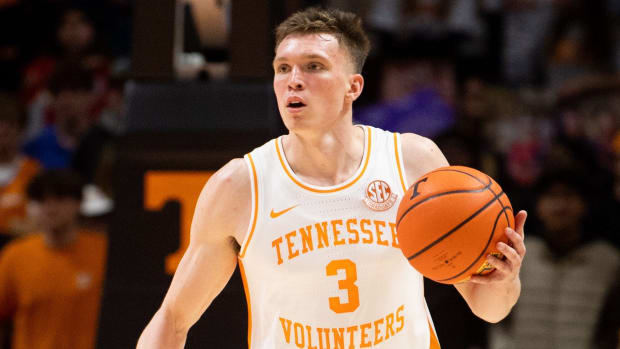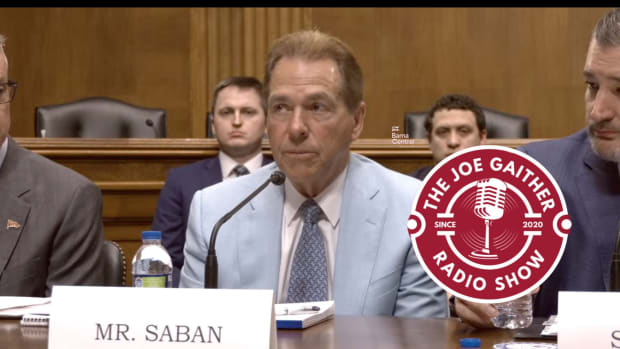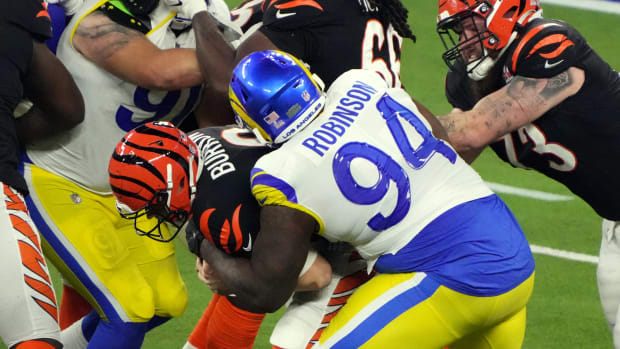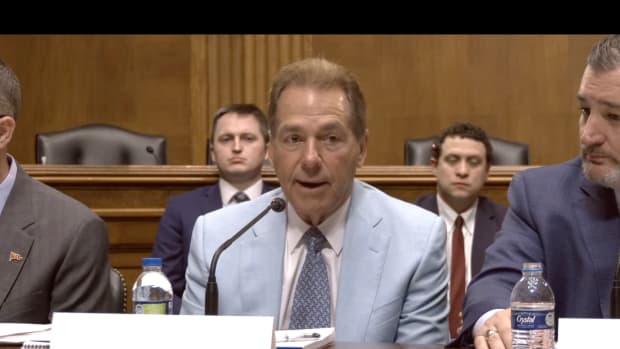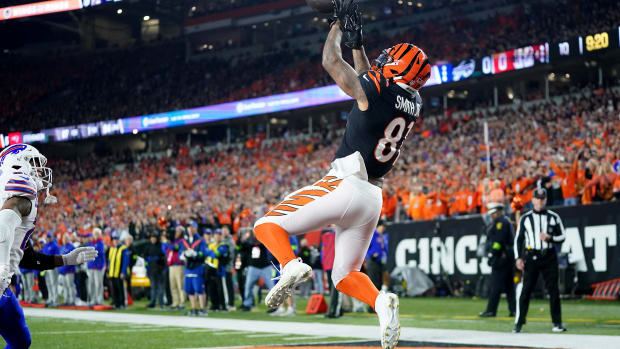Crimson Corner: Breaking Down Alabama Athletics' NIL Policies
In case you missed it, Alabama Athletics issued guidelines for athletes, UA employees and fans/boosters regarding the new state-wide Name, Image and Likeness laws that will go into effect on July 1.
While the NCAA is expected to pass legislation regarding NIL sometime on Wednesday, currently each individual state has formed its own legislation in order to provide athletes with fair compensation via sponsorship deals while representing their respective schools.
There are still plenty of wrinkles to be ironed out and the inaugural NIL system will likely evolve in the coming months and years, but athletes finally getting compensation through money, goods and services for the millions of dollars of revenue that they bring to their institutions has been a long time coming.
In short, college athletics is about to change forever.
You can argue that athletes getting paid destroys the amateurism aspect of the sport and you'd be 100-percent correct. You can argue that athletes are already compensated enough with tuition, room and board, books, tutoring and other various means of pay and you'd still have a solid argument. However, the fact of the matter is this: college athletes have been exploited for far too long and a change in the system is long overdue.
Alabama athletics is off to a great start in building personal brands for athletes and setting them up for sponsorship opportunities. Earlier this year, UA announced 'The Advantage,' a program designed to help athletes build their personal brands by giving them tools and educational opportunities to elevate their platforms.
Alabama athletics continued to show its preparedness on Tuesday when it released its new NIL policies. Let's break down the key points:
- UA Employee Restrictions: UA employees are not allowed to provide compensation or arrange compensation for athletes, both current and prospective.
- NIL Compensation Forbidden in Recruiting Process: Compensation (or promise of sponsorship deals) cannot be exchanged with prospective athletes in order for them to attend UA.
- Multiple Forms of Compensation: Alabama outlined that compensation can be distributed as money, goods or services.
- Time Limit: Contracts with Alabama athletes are not allowed to extend past the athlete's time with the Crimson Tide.
- Limit on Professional Representation: Crimson Tide athletes are allowed to have professional representation to negotiate contracts. However, those representatives are not allowed to be involved with the athlete past NIL (including future contract negotiations past graduation).
- Full Disclosure: Athletes are required to share any and all agreements with the University of Alabama.
- Boosters/Fans: Boosters and fans can use an athlete's NIL in exchange for compensation as long as it doesn't violate Alabama law. However, compensation cannot be given to prospective athletes. Athletes also cannot receive compensation depending on their on-the-field performance.
- Endorsement Limitations: Athletes cannot receive compensation or endorsements from tobacco or alcohol companies, sellers or distributors as well as adult entertainment businesses such as strip clubs or casinos.
- Other Limitations: UA reserves the right to stop an athlete from receiving compensation from a company that "in the reasonable and good faith judgment of UA, negatively impacts or reflects adversely on UA."
- UA Trademarks: UA registered/licensed trademarks including logos and verbiage are not allowed unless the company is given expressed consent from UA.
- Market Value: Compensation for athletes must be within market value.
So as any fan can see, NIL is already being regulated by the university. However, it is up to each individual institution to create their own NIL policies. While Alabama has done a solid job at laying down the groundwork and other institutions will likely follow its format, there is still work to be done regarding uniform, wide-sweeping legislation.
The NCAA will likely attempt to provide that legislation but will have a difficult time providing a solution that does not interfere with various state laws across the country. That being said, the whole NIL situation is currently in its newborn state and will have to grow and mature over time.
Trial and error will no doubt be key in the coming months and years. However, for now things are off to a roaring start in Tuscaloosa.
